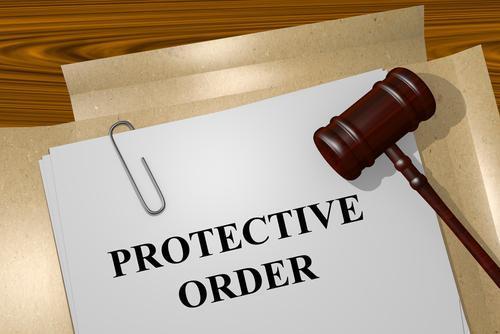Recent Blog Posts
Tips for a Successful Collaborative Divorce in Illinois
Posted on October 07, 2019 in Divorce
 While the divorce process can be difficult, some couples may be able to work together to end their marriage as amicably as possible. Collaborative divorce is an alternative dispute resolution process where spouses and their attorneys work together cooperatively to negotiate an equitable settlement. The focus is on problem-solving based on the couple’s individual and shared values without having to go to court. There are many benefits to a collaborative divorce, but it may not work for everyone. A couple needs to be willing to compromise on certain issues in order to make decisions without a judge getting involved.
While the divorce process can be difficult, some couples may be able to work together to end their marriage as amicably as possible. Collaborative divorce is an alternative dispute resolution process where spouses and their attorneys work together cooperatively to negotiate an equitable settlement. The focus is on problem-solving based on the couple’s individual and shared values without having to go to court. There are many benefits to a collaborative divorce, but it may not work for everyone. A couple needs to be willing to compromise on certain issues in order to make decisions without a judge getting involved.
Benefits of Collaborative Law
A collaborative divorce has many advantages, and the primary benefit is the ability to avoid going to court to resolve disputes through litigation. Some of the other benefits of using a collaborative form of divorce include:
Continue Reading ››
What Will a Judge Consider When Creating a Parenting Plan?
Posted on October 02, 2019 in Child Custody

The health and well-being of a couple’s child should always be a top priority when ending a relationship or going through a
divorce. During this process, a
parenting plan will be created to make decisions and establish rules that the parents should follow regarding issues such as the
allocation of parental responsibilities and
parenting time. Parents can save a lot of time and money by working together and addressing these matters prior to facing a judge. However, if a couple cannot come to an agreement, the judge will be required to make legally binding decisions that would reflect the best interests of the child.
Decision-making Responsibilities
Continue Reading ››
When Is an Order of Protection Appropriate in a Family Law Case?
Posted on September 30, 2019 in Family Law
 Domestic violence is unfortunately a common reason as to why a person would seek a divorce and request assistance from the law. An order of protection may be obtained if an individual is fearful for his or her safety or well-being. If a person’s former spouse does not adhere to the terms of this type of court order, consequences such as fines and/or jail time could result.
Domestic violence is unfortunately a common reason as to why a person would seek a divorce and request assistance from the law. An order of protection may be obtained if an individual is fearful for his or her safety or well-being. If a person’s former spouse does not adhere to the terms of this type of court order, consequences such as fines and/or jail time could result.
What Is an Order of Protection?
In the state of Illinois, an order of protection is a civil court ruling that provides a safeguard for victims of domestic violence or other crimes. These protective orders can be procured on an emergency basis when an individual is likely to be the victim of injury or abuse. An order of protection falls under what is known as the Illinois Domestic Violence Act. This law offers protection to victims that are abused by a family or household member, which can include:
Continue Reading ››
How Do Young Children and Adolescents Handle Their Parents’ Divorce?
Posted on September 27, 2019 in Divorce
 Whether heated debates over parenting time or disagreements about marital debts add fuel to an already stressful home environment, children caught in the middle of a divorce have plenty to contend with. Even if divorcing parents attempt to protect their children from conflict, the divorce process can be emotionally turbulent for them. Experts tell us that parental divorce has a significant impact on children of all ages, although younger children tend to process and react to the separation differently than older adolescents. These variations in behavioral changes can be alarming for parents, who themselves are feeling the emotional effects of such a big life change.
Whether heated debates over parenting time or disagreements about marital debts add fuel to an already stressful home environment, children caught in the middle of a divorce have plenty to contend with. Even if divorcing parents attempt to protect their children from conflict, the divorce process can be emotionally turbulent for them. Experts tell us that parental divorce has a significant impact on children of all ages, although younger children tend to process and react to the separation differently than older adolescents. These variations in behavioral changes can be alarming for parents, who themselves are feeling the emotional effects of such a big life change.
Behavioral Changes to Expect from Your Teen or Little One
Continue Reading ››
How Can I Address Parental Alienation After My Divorce?
Posted on September 23, 2019 in Divorce
 When a couple goes their separate ways after a dissolution of marriage, one or both of the spouses might encounter some hardships. Feelings of depression and anger can resonate in an ex-spouse, affecting the relationship with other family members, including children. Regardless of how rocky a divorce can be, it is important to remember that when a child is involved, his or her best interests should remain the focal point of both caregivers. Parenting plans are created to ensure the child receives quality parenting time with both parents. However, parental alienation is a growing area of concern. It can be defined by one parent manipulating his or her child and attempting to negatively affect the child’s relationship with the other parent. This malicious behavior could result in the child associating negative emotions or even hatred with the alienated parent.
When a couple goes their separate ways after a dissolution of marriage, one or both of the spouses might encounter some hardships. Feelings of depression and anger can resonate in an ex-spouse, affecting the relationship with other family members, including children. Regardless of how rocky a divorce can be, it is important to remember that when a child is involved, his or her best interests should remain the focal point of both caregivers. Parenting plans are created to ensure the child receives quality parenting time with both parents. However, parental alienation is a growing area of concern. It can be defined by one parent manipulating his or her child and attempting to negatively affect the child’s relationship with the other parent. This malicious behavior could result in the child associating negative emotions or even hatred with the alienated parent.
Continue Reading ››
What Is the Business Valuation Process in an Illinois Divorce?
Posted on September 18, 2019 in Divorce
 When two people decide to get a divorce, there are many issues to consider, especially if they have been together for a long time. In some marriages, a couple may have even worked with each other and started a business or professional practice together. In other cases, one spouse may have owned a company prior to getting married, but his or her partner helped run it during their union. Dividing this important asset during a divorce can often be a contentious and time-consuming procedure. Regardless of whether the business is family-owned, or if one person acts as a silent partner, each party may be entitled to part of the value of the business assets. In some cases, if the spouses cannot agree on the value of their business, they may need to go through business valuation litigation in order to receive their fair share of the marital property.
When two people decide to get a divorce, there are many issues to consider, especially if they have been together for a long time. In some marriages, a couple may have even worked with each other and started a business or professional practice together. In other cases, one spouse may have owned a company prior to getting married, but his or her partner helped run it during their union. Dividing this important asset during a divorce can often be a contentious and time-consuming procedure. Regardless of whether the business is family-owned, or if one person acts as a silent partner, each party may be entitled to part of the value of the business assets. In some cases, if the spouses cannot agree on the value of their business, they may need to go through business valuation litigation in order to receive their fair share of the marital property.
Continue Reading ››
Tips for Telling Your Child You Are Getting a Divorce
Posted on September 16, 2019 in Divorce
 If your marriage has broken down, you may be considering divorce, although this decision can be a difficult one if you and your spouse have children together. While you may feel that it would be better to stay together for the sake of the children, this may ultimately not be in their best interests, since being exposed to conflict between parents can cause a great deal of stress for children. If you do decide to pursue a divorce, you will want to ensure that your children understand how their lives will change while assuring them that they will have your love and support moving forward.
If your marriage has broken down, you may be considering divorce, although this decision can be a difficult one if you and your spouse have children together. While you may feel that it would be better to stay together for the sake of the children, this may ultimately not be in their best interests, since being exposed to conflict between parents can cause a great deal of stress for children. If you do decide to pursue a divorce, you will want to ensure that your children understand how their lives will change while assuring them that they will have your love and support moving forward.
Things to Remember When Talking to Children About Divorce
Telling your children that you and your spouse will be getting a divorce could result in a variety of strong emotions, including sadness, confusion, and anxiety. One of the very first reactions a son or daughter will have is the belief that he or she is responsible for the breakdown of the marriage. By assuring children that they were not at fault for the divorce in any way and explaining the situation in a way they can understand, you can help relieve a great deal of stress and anxiety. When discussing divorce with your children, it is important to:
Continue Reading ››
How Can a Spousal Support Order Be Modified in Illinois?
Posted on September 11, 2019 in Alimony/Spousal Support
 Although divorce is a fairly common occurrence these days, every couple’s situation is unique. In some cases, spousal support/maintenance may be awarded to one spouse. Under Illinois law, the court considers various factors when determining whether to award maintenance (also known as alimony), and the law provides guidelines for calculating the amount and duration of support payments. Orders can be modified, however, if a substantial change warrants it. To request a modification of the support amount or to ask that the payments be terminated, the individual seeking the modification must file a petition with the court where the order was originally issued.
Although divorce is a fairly common occurrence these days, every couple’s situation is unique. In some cases, spousal support/maintenance may be awarded to one spouse. Under Illinois law, the court considers various factors when determining whether to award maintenance (also known as alimony), and the law provides guidelines for calculating the amount and duration of support payments. Orders can be modified, however, if a substantial change warrants it. To request a modification of the support amount or to ask that the payments be terminated, the individual seeking the modification must file a petition with the court where the order was originally issued.
Reasons for Modification
Family situations can change due to extenuating circumstances. According to Illinois law, there are several events that constitute an automatic spousal support order modification, including:
Continue Reading ››
When Does an Unmarried Couple Need a Cohabitation Agreement?
Posted on September 10, 2019 in Cohabitation
 Couples that choose to live together while remaining unmarried are becoming more and more common in today's society. While there are a wide variety of reasons why a couple may not want to establish a legal partnership through marriage, they may wish to create a legal agreement that will protect their rights. A cohabitation agreement is a legally binding contract between partners, and it can establish property rights and describe how certain matters should be handled if the couple decides to break up. In any relationship, it can be difficult to consider a future without the other partner, but protecting yourself and planning for your future through a cohabitation agreement could help avoid unnecessary stress.
Couples that choose to live together while remaining unmarried are becoming more and more common in today's society. While there are a wide variety of reasons why a couple may not want to establish a legal partnership through marriage, they may wish to create a legal agreement that will protect their rights. A cohabitation agreement is a legally binding contract between partners, and it can establish property rights and describe how certain matters should be handled if the couple decides to break up. In any relationship, it can be difficult to consider a future without the other partner, but protecting yourself and planning for your future through a cohabitation agreement could help avoid unnecessary stress.
How Can a Cohabitation Agreement Be Helpful?
While some states recognize common-law marriage, in which a couple is considered to be legally married if they live together for a certain number of years, Illinois does not provide unmarried couples with the rights afforded to married spouses. While a prenuptial agreement may be created to help couples entering into marriage protect their assets or address what should happen in the case of divorce, these agreements only apply to married spouses. For those reside together and do not wish to be married, a cohabitation agreement can offer similar protections.
Continue Reading ››
How Is a Professional Practice Divided in an Illinois Divorce?
Posted on September 04, 2019 in Divorce

When going through a divorce, a couple will need to divide up their property. According to the Illinois Marriage and Dissolution of Marriage Act (IMDMA), marital property is divided using “equitable distribution.” This means any property or assets acquired during the marriage must be divided fairly, but not necessarily equally. If one spouse is a doctor, dentist, lawyer, psychologist, accountant, or any professional who owns his or her own practice or business, this can complicate matters. Like any piece of the marital estate, several factors will be considered to determine how to divide a professional practice or business during the divorce proceedings. It is important to seek legal counsel so you know your rights when it comes to splitting this valuable asset.
Continue Reading ››


















